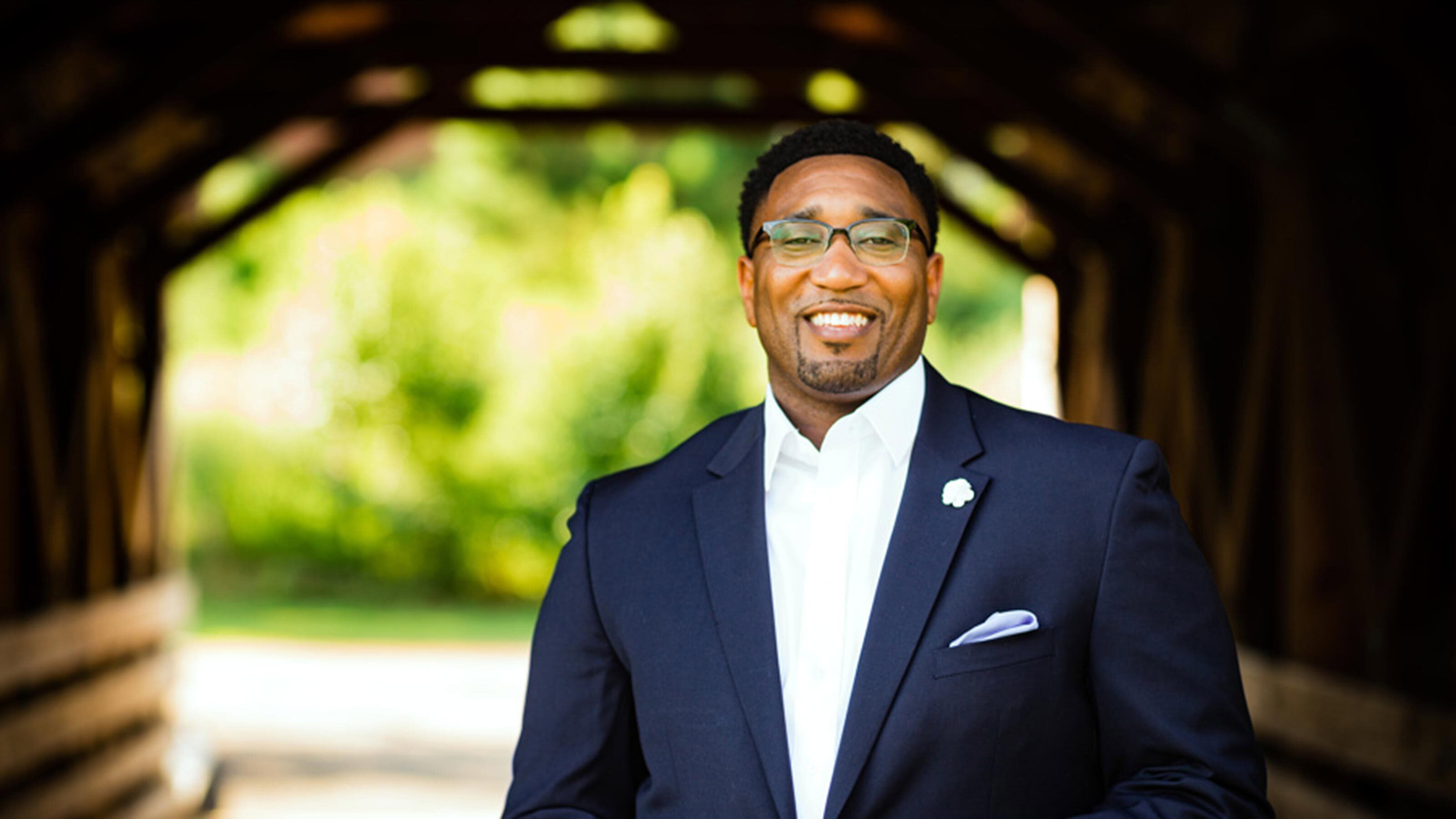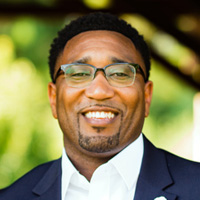I’m Not a Millionaire, But I Just Gave $250,000 to Morehouse College: Here’s How (and Why)
You don’t have to be a millionaire to make a generous charitable donation to a cause that means the world to you, just like I did. Here’s the strategy that enabled me to give $250,000 to Morehouse College, and how you might be able to do something similar.


Profit and prosper with the best of Kiplinger's advice on investing, taxes, retirement, personal finance and much more. Delivered daily. Enter your email in the box and click Sign Me Up.
You are now subscribed
Your newsletter sign-up was successful
Want to add more newsletters?

Delivered daily
Kiplinger Today
Profit and prosper with the best of Kiplinger's advice on investing, taxes, retirement, personal finance and much more delivered daily. Smart money moves start here.

Sent five days a week
Kiplinger A Step Ahead
Get practical help to make better financial decisions in your everyday life, from spending to savings on top deals.

Delivered daily
Kiplinger Closing Bell
Get today's biggest financial and investing headlines delivered to your inbox every day the U.S. stock market is open.

Sent twice a week
Kiplinger Adviser Intel
Financial pros across the country share best practices and fresh tactics to preserve and grow your wealth.

Delivered weekly
Kiplinger Tax Tips
Trim your federal and state tax bills with practical tax-planning and tax-cutting strategies.

Sent twice a week
Kiplinger Retirement Tips
Your twice-a-week guide to planning and enjoying a financially secure and richly rewarding retirement

Sent bimonthly.
Kiplinger Adviser Angle
Insights for advisers, wealth managers and other financial professionals.

Sent twice a week
Kiplinger Investing Weekly
Your twice-a-week roundup of promising stocks, funds, companies and industries you should consider, ones you should avoid, and why.

Sent weekly for six weeks
Kiplinger Invest for Retirement
Your step-by-step six-part series on how to invest for retirement, from devising a successful strategy to exactly which investments to choose.
If someone just told you they gifted $250,000 to their alma mater, what would you think? That they were just flexing? That they were worth millions? Or maybe even that they would be a great person to ask about making you a 100% “forgivable loan”!
When we hear these kinds of stories, we often think the person behind the philanthropy must be unspeakably rich and wealthy. But the truth is, it’s easier and more affordable than you may think to make a significant planned gift to a worthy institution like Morehouse College — which is what I just did.
Although I’m not worth tens of millions (yet!), I’m very proud and excited to share that I’m that person who made a $250,000 planned gift to the college. And I’m telling you this not to brag, but to explain how you may be able to do the same.
From just $107.88 $24.99 for Kiplinger Personal Finance
Become a smarter, better informed investor. Subscribe from just $107.88 $24.99, plus get up to 4 Special Issues

Sign up for Kiplinger’s Free Newsletters
Profit and prosper with the best of expert advice on investing, taxes, retirement, personal finance and more - straight to your e-mail.
Profit and prosper with the best of expert advice - straight to your e-mail.
As a CERTIFIED FINANCIAL PLANNER™️, graduate of the Philanthropic Advisor Institute and a Chartered Advisor in Philanthropy®, I want to provide the details that may help you align your own giving aspirations with your financial plan.
Start by giving from the heart
When you give to charity, you should not look at what you can get back in return. Whether that benefit is in the form of tax relief, name recognition or simply better seats at a football game, this is something that I always caution individuals against as they make their decision to donate.
One big reason why is purely practical. Those benefits you angle for may not stay in place over time. Take the 2017 Tax Cuts and Jobs Act (TCJA) as an example. Before this law passed, the standard deduction for a single filer was $6,350. If all of your itemized deductions (which is where charitable deductions show up when you prepare your tax return) exceed this threshold, then you might reap additional tax benefits as your donation could lower your taxable income.
But the standard deduction practically doubled for tax filers after 2017. For 2020, the standard deduction for single filers is $12,400. If you hoped to make a planned gift just for the sake of earning tax breaks, it may no longer make sense to do so! Although the TCJA made the lives of most taxpayers who can simply use the higher standard deduction easier, over 30 million people lost the benefits of itemizing on their respective returns.
As we have all experienced, no matter what administration is in office, our country's policies are forever changing. But if you make your planned gift from the heart, this will always be a decision that you will be proud of.
Identify the ‘why’ behind your passion for giving
When I look back at when my passion for giving began, a few events from a very young age come to mind. These experiences taught me the importance of contributing to and empowering your community.
With my parents' passing when I was 6, the saying "it takes a village to raise a child" took on a whole new meaning in my own life. Many people made a lot of sacrifices that allowed me to grow into the man I am today. If I named all of the people in this article, we wouldn’t have time to get into anything else.
There are two important figures — outside of my own family, who did an incredible amount on their own to support and encourage me — however, that I do want to highlight. They made a tremendous impact on the trajectory of my life.
The first is former U.S. Congressman the Rev. Dr. Floyd H. Flake. To this day, I find Rev. Dr. Flake to be one of the most inspirational men I have ever had the good fortune to be around. Whenever I need motivation for anything that I am trying to accomplish in life, whether personal or business, I often think back on his many sermons or life lessons. Part of the reason I’m passionate about philanthropy is due to all the ways in which he gave his time, money and knowledge back to our community — and to me. I have the reverend to thank for his letter of recommendation that he wrote for me to get into Morehouse College.
The second is not just one person, but an entire group: the parents of my high school friends. Growing up as a kid with no parents, all of these individuals made an active effort to include me and ensure I never felt unloved at any point. The Thomas family hosted all the kids for dinner every Sunday. The Dent family allowed us to come over and play video games into the wee hours in the morning. The Leconte family taught me how to drive (in their brand-new car no less!) and the Lewis family gave me my first car. The Scott family always provided a judgment-free and safe place where we knew we could hang out and were always welcome.
These experiences and relationships inspired me to provide the same amount of love, support and encouragement to the youth following me. They are my “why” for why I work hard to pay it forward.
Know the charities or institutions you want to support
I often tell people that one of the best decisions I ever made was to matriculate at Morehouse College. The combination of culture, brotherhood, history and the abundance of Black excellence was life-changing for a parentless child like myself who grew up in Jamaica, Queens.
Morehouse not only challenged me academically, but educated me in ways I could not have expected before enrolling. Only a handful of schools teach the critical life lessons that you can receive as you earn your college credit at Morehouse, especially to Black men.
Staying in Atlanta after graduation only furthered my relationship with the college. After graduation, I stayed involved by volunteering in the business school as a guest lecturer. I taught lessons on personal finance. Most recently, I became a founding member of Morehouse's Planned Giving Council.
It is no secret that all Historically Black College and Universities (HBCUs) face a significant financial threat to their futures. I want to do my part so that Morehouse is around for my heirs to have the option to choose this great institution should they want to, and I hope to lead by example. My planned gift to the college is something that I hope other people can see, and repeat themselves.
How to make a $250,000 gift to your own cause
Now, let's get down to the fun part and talk about how my gift was made — and explain how anyone can make a significant contribution like this, no matter their income.
First, we need to understand the difference between an annual gift and a planned gift. An annual gift is usually a formal or informal financial commitment to a charity, ranging from $1 to $10,000. These gifts are often given sporadically by the donor and are usually driven by campaigns (like fundraising around homecoming or other programs and events).
Planned gifts are usually more formal, and usually higher-value. These gifts often exceed $100,000, and the donor signs a pledge agreement before making the gift. The charity or organization may not receive the gift for several years, and it may even have to wait until after the donor's death.
Although some may see a $100,000 price tag and think this strategy is reserved for the ultra-wealthy, there are a few planned giving strategies that anyone can employ. Some examples include outright bequests of personal property (via a will), gifting of unneeded retirement plan assets (through Qualified Charitable Distributions or naming the organization as a beneficiary), charitable gift annuities (where the donor receives income for life from the charity), life estate (gifting of real estate) or gifting a life insurance policy.
For my planned gift to Morehouse College, that last strategy on the list is the one I chose. I took out a $250,000 Universal Life policy and named Morehouse College as the sole beneficiary. Upon my passing, the school will receive the death benefit of that insurance policy. This policy will cost me $2,200 per year until I turn 65; this premium cost was determined by my current health and age. The policy will be paid in full at that point, but will last in force until I turn 100.
Personally, I am a huge fan of this strategy because of the flexibility and what I like to call the gifting multiplier effect. Let's assume that I made an annual gift of $2,200 to Morehouse College every year, from now until I turned 100. Those total gifts would amount to $134,200 — or $115,800 less in total than my planned giving strategy using the life insurance policy. In addition, taking out the policy rather than writing $2,200 checks each year for the rest of my life will cost over $70,000 less for me over time.
When properly employing a planned gifting strategy, the charity often receives more than when the property was initially donated because the gifted property is usually an appreciating asset. So, in theory, everyone wins!
I hope this illustrates a potential path that almost anyone can follow to give back to a charity, organization or cause that means as much to them as Morehouse College means to me. This is one strategy that allows you to make an affordable, life-changing donation to the charity or cause of your choice.
If after reading this and this process still seems a bit intimidating, don’t fret. Most charities have Planned Giving Officers who can assist you, so don’t hesitate to reach out to learn more about how you can give back, too.
Profit and prosper with the best of Kiplinger's advice on investing, taxes, retirement, personal finance and much more. Delivered daily. Enter your email in the box and click Sign Me Up.

Malik S. Lee, CFP®, CAP®, APMA®, is a financial expert with nearly two decades of experience and is the managing principal and founder of Felton & Peel Wealth Management, a full-service, comprehensive wealth management firm servicing clients nationwide with offices in both Atlanta and New York. Malik graduated with a degree in finance from Morehouse College and is a CERTIFIED FINANCIAL PLANNER™, Chartered Advisor in Philanthropy® and an Accredited Portfolio Management Advisor℠.
-
 Betting on Super Bowl 2026? New IRS Tax Changes Could Cost You
Betting on Super Bowl 2026? New IRS Tax Changes Could Cost YouTaxable Income When Super Bowl LX hype fades, some fans may be surprised to learn that sports betting tax rules have shifted.
-
 How Much It Costs to Host a Super Bowl Party in 2026
How Much It Costs to Host a Super Bowl Party in 2026Hosting a Super Bowl party in 2026 could cost you. Here's a breakdown of food, drink and entertainment costs — plus ways to save.
-
 3 Reasons to Use a 5-Year CD As You Approach Retirement
3 Reasons to Use a 5-Year CD As You Approach RetirementA five-year CD can help you reach other milestones as you approach retirement.
-
 The 4 Estate Planning Documents Every High-Net-Worth Family Needs (Not Just a Will)
The 4 Estate Planning Documents Every High-Net-Worth Family Needs (Not Just a Will)The key to successful estate planning for HNW families isn't just drafting these four documents, but ensuring they're current and immediately accessible.
-
 Love and Legacy: What Couples Rarely Talk About (But Should)
Love and Legacy: What Couples Rarely Talk About (But Should)Couples who talk openly about finances, including estate planning, are more likely to head into retirement joyfully. How can you get the conversation going?
-
 How to Get the Fair Value for Your Shares When You Are in the Minority Vote on a Sale of Substantially All Corporate Assets
How to Get the Fair Value for Your Shares When You Are in the Minority Vote on a Sale of Substantially All Corporate AssetsWhen a sale of substantially all corporate assets is approved by majority vote, shareholders on the losing side of the vote should understand their rights.
-
 How to Add a Pet Trust to Your Estate Plan: Don't Leave Your Best Friend to Chance
How to Add a Pet Trust to Your Estate Plan: Don't Leave Your Best Friend to ChanceAdding a pet trust to your estate plan can ensure your pets are properly looked after when you're no longer able to care for them. This is how to go about it.
-
 Want to Avoid Leaving Chaos in Your Wake? Don't Leave Behind an Outdated Estate Plan
Want to Avoid Leaving Chaos in Your Wake? Don't Leave Behind an Outdated Estate PlanAn outdated or incomplete estate plan could cause confusion for those handling your affairs at a difficult time. This guide highlights what to update and when.
-
 I'm a Financial Adviser: This Is Why I Became an Advocate for Fee-Only Financial Advice
I'm a Financial Adviser: This Is Why I Became an Advocate for Fee-Only Financial AdviceCan financial advisers who earn commissions on product sales give clients the best advice? For one professional, changing track was the clear choice.
-
 I Met With 100-Plus Advisers to Develop This Road Map for Adopting AI
I Met With 100-Plus Advisers to Develop This Road Map for Adopting AIFor financial advisers eager to embrace AI but unsure where to start, this road map will help you integrate the right tools and safeguards into your work.
-
 The Referral Revolution: How to Grow Your Business With Trust
The Referral Revolution: How to Grow Your Business With TrustYou can attract ideal clients by focusing on value and leveraging your current relationships to create a referral-based practice.